LATEST NEWS


Before Capital & Main emerged from our earlier blog, Frying Pan News, writers Vivivan Rothstein and Steven Mikulan took in a movie now and then. Here are excerpts from some of their 2013 reviews.
12 Years a Slave Towering profiles of moss-hung oaks, silhouetted against languid Southern sunsets, form some of the indelible images from Steve McQueen’s new film. So too do gruesome close-ups of the scarred backs of antebellum slaves, whose skin has hardened to bark by years of whippings. This is the central visual paradox in 12 Years a Slave, which contrasts quiet moments of primeval, pastoral beauty with the loud, primitive violence practiced by plantation owners. (Steven Mikulan)
Go Public I wanted to cry after watching Go Public: A Day in the Life of an American School District.
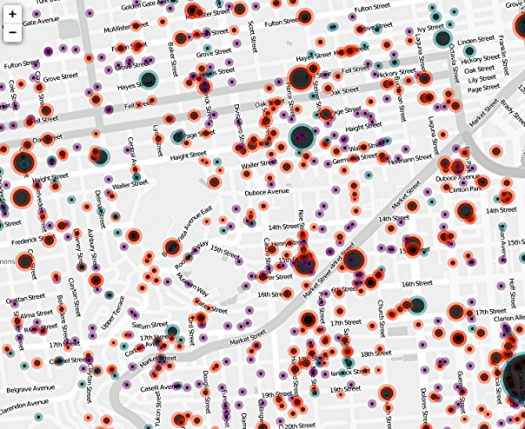

The Anti-Eviction Mapping Project (AMP) was formed to show how speculators target Bay Area communities — and, in our small way, to assist in affecting change. The volunteer AMP collective grew from tangential connections of concerned strangers in April, 2013. Four core members—Erin, Julia, Olivia and myself—have expanded to 12 and counting. We share a deep concern for the growing displacement of our friends and neighbors, yet as individuals, we were initially unsure how we could participate in stopping it.
AMP’s members have varying strengths in data analysis, research, web design, programming and direct action which all complement each other. We hope that our maps and digital storytelling can de-isolate the victims of no-fault eviction and also serve as tools for collective resistance.
San Francisco, like most large cities, is predominantly composed of renters—65 percent. Renters feed the city apparatus as voters, small business owners,


‘Tis the season of miracles.
That’s not a phrase that sits easily with the modern mind. Nevertheless, the stories with which we mark this time of year all contain gestures, unexpected motions and things hoped for — but that are not at all certain or even vaguely possible. The lamp held enough oil for a couple of days at most, but it stays lit for eight – until more can be brought from a distance. A peasant sees the Virgin Mary but, of course, the local bishop doesn’t believe that such a simple person would be visited by Her, but another vision accompanied by long-stemmed red roses convinces him. A poor working family bears a child in circumstances no middle class American can quite grasp, and people think this one will be the liberator of his people. Those are miracles.
Of course, these stories update a deeper and even older human experience when the ancients awaited the sun’s return.


Last week the voter-approved $15 minimum wage set for airport-related workers near the town of SeaTac, Washington, survived a recount and is now supposed to go into effect on January 1. The win sets a new standard for pay and benefits for hospitality and transportation workers, and will bring much-needed financial relief for low-wage workers who cater to millions of travelers at one of the country’s busiest international airports. SeaTac’s Proposition 1, which voters initially approved last month, will bring much-needed improvements to the lives of more than 6,300 workers who currently bring home less than $1,500 per month on average. Backers of the historic measure say the new minimum wage for SeaTac workers will stimulate the local economy to the tune of $54 million per year.
Predictably, the corporate interests who’ve so far ended up on the losing side have no intention of simply bowing down to the will of the city’s voters.
» Read more about: SeaTac Workers Await Ruling on New $15 Minimum Wage Law »
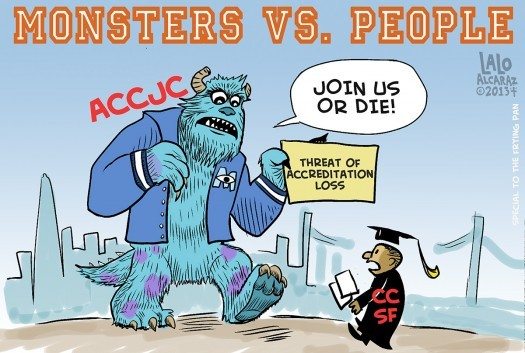
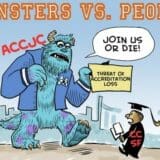
To appreciate the value of a community college education, consider the transformation of Shanell Williams.
By the time she was a teenager, Williams was constantly getting into trouble on the streets of San Francisco’s Fillmore District. Her abuse of drugs and alcohol, along with a difficult family life, would lead her into the juvenile justice system, drug treatment centers and foster homes.
“I was a juvenile delinquent,” she admits.
Today Williams, now 29, hardly resembles that troubled youth. She is a hard-working student at City College of San Francisco, taking urban studies courses and hoping to transfer to Stanford University or the University of California at Berkeley. She has served as president of the student council at CCSF’s Ocean campus and was elected to be the student representative on CCSF’s Board of Trustees.
“Community college has helped give me a pathway to higher education,” she says.
That pathway may soon be closing.


A few years ago, the Los Angeles Times began a practice of selling ads on the front pages of its sections. It was a slow build, with a preliminary announcement in 2007 and, two years later, it actually began to happen. Reaction from readers was not positive. The continued practice is still not exactly popular. At times, it’s clear these things are ads, while in other circumstances, they are designed to look like news articles.
Whether this piece falls into that new tradition, I’m not sure. The “article” was written by Paresh Dave, and tells us about Riddell’s new InSite Impact Response System, a football helmet Riddell says will protect players against concussions. (The system uses sensors inside the helmet, which wirelessly relay to the sidelines data about potentially traumatic hits.) High schools are purchasing the helmets and offering them to parents for free or at a limited cost and,


As a member of the Jobs to Move America coalition, I was more than a little dumbfounded to read a blog post by Brandon Fuller promoting a study authored by three economists from UCLA and Cornell University that criticizes taxpayer investment in American-made buses. Fuller’s post appeared on The Atlantic‘s Cities website, which also tweeted: “@AtlanticCities: Subsidies require cities to buy American-made buses. Change that, and bus services can be cheaper”
Huh? The Jobs to Move America campaign offers a real-life rebuttal to the study’s theoretical arguments against American-made buses. Here are five reasons Fuller and the research he embraces are wrong:
1) The best use of American taxpayers’ money is buses Made in America.
Fuller’s argument that sending taxpayer dollars overseas is a better investment than buying American-made buses simply does not add up. Why?
» Read more about: Five Arguments for American-Made Buses & How ‘The Atlantic Cities’ Got It Wrong »
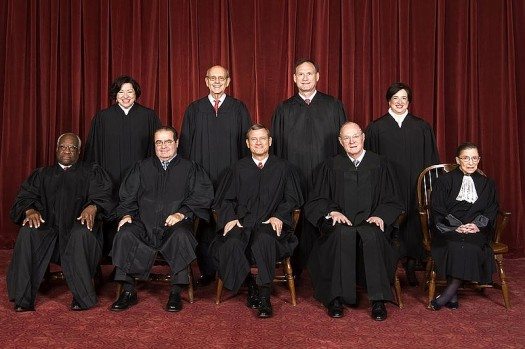

A few weeks ago we told you about a U.S. Supreme Court case and noted that a decision wasn’t expected until Spring. However, by a margin of either 5-4 or 6-3, SCOTUS moved fast with this one, with the brave decision earlier this week… to duck.
The case, UNITE HERE Local 335 v. Mulhall, was an attempt to overturn a bizarre ruling by the 11th Circuit Court that threatened card check neutrality agreements, the manner in which most unions have organized for the past two decades.
UNITE HERE sought to organize a proposed casino in Florida, and said casino, to be built and run by Mardi Gras Gaming, needed the approval of voters. To that end, Mardi Gras and UNITE HERE made an agreement. UNITE HERE would agree not to strike or boycott the property, and to support the casino’s construction. Mardi Gras would agree to be neutral in any organizing effort and to recognize the union if a majority of workers signed authorization cards saying they wished to be represented by Local 335.
» Read more about: Supreme Court Decision: Mulhall, Interrupted »


Yesterday Mother Jones’ Kevin Drum drew some disheartening conclusions from the budget deal worked out between Congressman Paul Ryan and Senator Patty Murray – the much-lauded compromise that is headed for passage, barring some last-minute Tea Party putsch in the House. Sure, Drum allowed, the budget’s entitlement cuts were almost too tiny to notice, and along the way some sequester reductions were restored. But that wasn’t the point.
“Two years ago,” Drum wrote, “Ryan’s budget was basically at the outer limit of mainstream conservative wish lists. Today it looks tame . . . Republicans have massively changed the spending conversation since 2010. Austerity has won.”
The fact remains that many in the political media are applauding the new budget as a triumph of realpolitik simply because it defuses the threat of a determined minority taking down the world economic order – a threat that has become the new baseline in budget negotiations.


Several leading port trucking companies have taken a bold new position in the ongoing battle over whether or not they are misclassifying drivers as independent contractors. In recent filings with the U.S. District Court, they have attempted to position themselves as beyond the reach of California’s employee protection laws. In effect, they are saying that whether or not they are misclassifying drivers there is nothing the State of California can do about it.
Some background: Of the approximately 12,000 port truck drivers in Southern California – about 110,000 nationwide – the overwhelming majority are improperly classified as “independent contractors.” This has dramatic repercussions, as these low-income, mostly immigrant drivers are thereby denied basic workplace rights and protections: no minimum wage or overtime or OSHA protections, no disability or workers comp or unemployment insurance, no legal right to organize a union. Instead, drivers are saddled with payments for the trucks they drive,
» Read more about: Trucking Companies to California: Your Puny Laws Don’t Apply to Us »
The Los Angeles County Department of Children and Family Services (DCFS) strike has been on my mind. Prior to leaving this April after nearly 12 years of service, I thought I would retire from DCFS. Even though I am no longer employed by DCFS and no longer in Los Angeles, I still feel connected to the social workers that do this work.
The strike started on December 5 when contract negotiations stalled. An unresolved issue is that of the Children’s Social Worker caseload for children and families who have abuse or neglect issues. High caseloads have been a long-standing issue even before this round of negotiations. One child is counted as one case. A child’s case goes through several service phases – from investigation to adjudication to offering services to maintain a child safely at home, or to reunify a the child with his parents once a family interfaces with DCFS.
» Read more about: Why I Support the Social Workers Strike »


“Give and it shall be given unto you is still the truth about life.”
D.H. Lawrence said that almost a century ago. Now we can read scientific evidence that this statement is true. How much we have or how much we earn does not make us happy. How we spend what we have is what makes us happy and the more that spending connects us to other human beings, the happier we are. Giving – to another person or through a charitable organization – is the deepest connection we can make.
While the conclusions of Happy Money, a book by research academics Elizabeth Dunn and Michael Norton, demonstrate that happiness and giving are closely connected, they also indicate that giving boosts our odds of living longer and healthier. Furthermore, the authors say, when a man in an experimental situation gave more to someone needy,
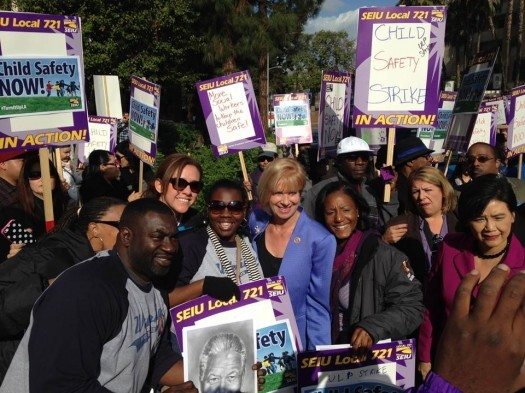

Last week Los Angeles County Children’s Social Workers went on strike after contract talks with the county broke down. At the heart of the conflict are claims made by the CSWs that the Department of Public Social Services and the L.A. County Board of Supervisors have refused to include in a new labor agreement a binding commitment to reduce the number of employee caseloads. The CSWs, represented by the Service Employees International Union Local 721, say the caseload numbers “greatly exceed acceptable industry standards.”
This morning at 11 a.m., union members, along with community and faith leaders, will take their complaints to field offices of the five supervisors: Gloria Molina, Zev Yaroslavsky, Don Knabe, Mark Ridley-Thomas and Mike Antonovich. The chief focus of Monday’s strike rallies will be Molina’s El Monte office, at 3400 Aerojet Avenue.
Local 721 claims the support of U.S. Congresswomen Janice Hahn and Judy Chu,
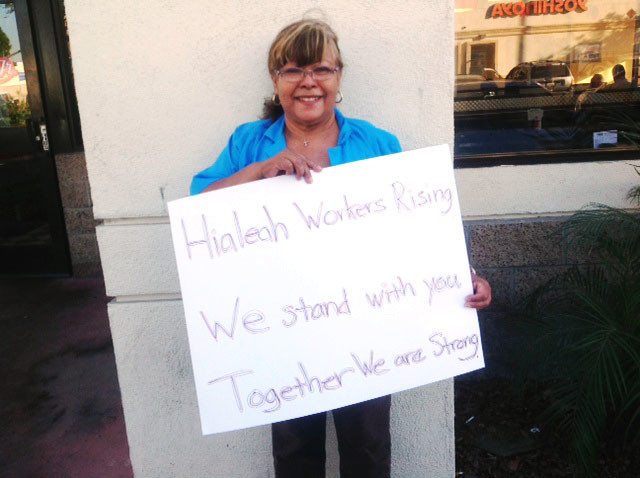

November, 2013 was not a good month to be a Walmart corporate executive.
The headaches for the nation’s largest employer of low-wage workers began November 18, when the National Labor Relations Board found that Walmart illegally threatened, disciplined and fired employees over last year’s Black Friday strikes and protests. The finding was the first step in an NLRB complaint asserting that the retail giant violated workers’ rights.
The Black Friday protests have been a driving force behind the core demand by Walmart employees that the company raise the annual earnings for sales associates above the federal poverty line.
That NLRB bombshell soon snowballed into a public relations disaster when, on the same day, news broke that a Canton, Ohio Walmart store had instituted a Thanksgiving food drive on behalf of store employees unable to afford a holiday meal. The Canton story was subsequently credited with reigniting the congressional fight for the first increase in the national $7.25-per-hour minimum wage since 2007.


Thursday’s one-day strike by fast-food workers may have received relatively little media coverage, but the doubling of strike sites to 100 cities over the previous nationwide actions showed the movement for higher wages and union recognition is growing.
The largest actions were held in New York City and Chicago, where, according to the Guardian UK, “hundreds of protesters gathered outside a McDonald’s at 6:15 a.m. as a large ‘Christmas Grinch’ ambled about in freezing temperatures.”
According to the Seattle Times, about 150 demonstrators rallied at City Hall following an all-day march in icy weather from neighboring SeaTac. In Los Angeles, rallies were held at dawn in South Los Angeles at a Manchester Boulevard McDonald’s, as well as a Sunset Boulevard McDonald’s in Silver Lake, at noon. The movement for fast-food employee rights has the twin goals of raising starting salaries to $15 an hour (at present they typically begin at $7.25) and to win the right to organize workers into unions.
» Read more about: Fast-Food Workers Movement Pushes Ahead »
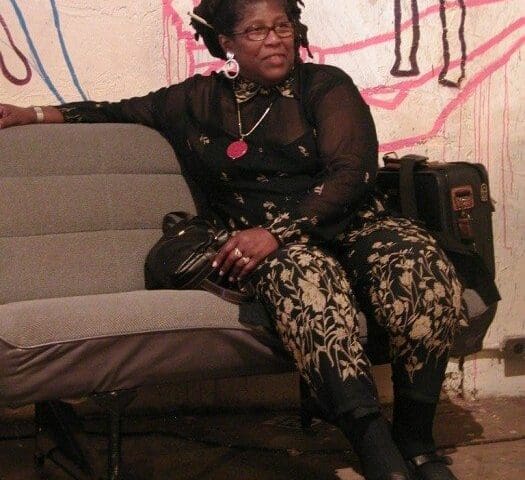

Over the past week, since Wanda Coleman’s untimely death at 67, admirers have been remembering her formidable body of work, her electrifying readings – and her identification with the city she called her home. Growing up in Watts in the 1950s, she experienced not only discrimination but also taunts by other black children because of her dark skin and untamable hair—which she describes in Bathwater Wine as “threads within coils within knots within twists.”
As a child, she took refuge in books, although not necessarily in libraries. (One poem describes a white librarian policing her through the stacks.) Her love of language sustained Coleman through her struggles to earn a living as a single mother, to cope with the death of a son and her own ill health. She did not choose an easy path. Furthermore, the West Coast is a hard place for any poet to make her name.
But Los Angeles gave Coleman a vocabulary and a landscape that she in turn made her own.
» Read more about: can’t let go of it: Appreciating Wanda Coleman »


Driving past Echo Park the other day I saw a cat convulsing in the road. It had plainly been hit by a car and was, hopefully, near death. I considered backing up and driving over the poor thing to end its misery, but I didn’t have the strength.
Francis Underwood, played by Kevin Spacey, finds himself in a similar situation in the opening scene of the Netflix series, House of Cards. He strangles a wounded creature (a dog) as he tells us there are two kinds of pain—that which makes you stronger and that which has no purpose and is thus just suffering.
Read Mark Fainaru-Wada and Steve Fainaru’s League of Denial and I promise you’ll be convinced there’s a third, perhaps more complicated category—suffering whose purpose is collective pleasure, incriminating participant and observer simultaneously.
The risks of repeated blows to the head are obvious and have been known for some time.


While growing up an American Catholic, I learned to tune out the Vatican, which had the air of Old World irrelevancy. The pope, I thought, was just the Catholic Church’s version of Queen Elizabeth, some doddering old monarch with no real power. The uncharismatic Pope Paul VI was a case in point, a kind of Millard Fillmore of the papacy. But instead of some dude with a bad 19th century haircut embroiled in states’ rights debates, this was an old Italian guy in a white dress. Same difference. But what did it have to do with my world?
Well, plenty as it turned out, for my boyhood coincided with the implementation of Pope John XXIII’s Vatican II reforms, which did in fact alter my world—in important ways. For a 9-year-old those important changes included permission to wear sneakers and T-shirts into church, the folk mass, no Latin classes — and an interesting lesson in architecture as the new circular churches that began to appear were more like theater in the round vs.
» Read more about: Pope Francis: Is God Actually in the House? »


In 2011, the University of California, Berkeley Center for Labor Research and Education put out a study that should have sparked mass rallies up and down the Golden State. The report found that nearly half of California workers will retire in or near poverty. In other words, a state once synonymous with the American Dream of economic opportunity and security is on a path to become a purgatory for millions of seniors.
It’s hard to square this alarming fact with the revelation last month that a group of mostly ultra-conservative electeds and activists will try to place a statewide measure on the 2014 ballot that would slash the pensions of government workers. The group, headed by San Jose Mayor Chuck Reed, includes Texas billionaire John Arnold, who has made “pension reform” a personal crusade.
The initiative would not only cut the retirement benefits of future public sector workers,
» Read more about: What State Pension Slashers Really Want »
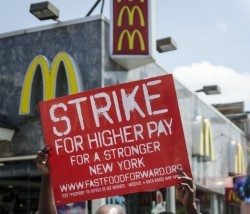
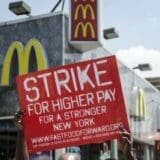
Following on the heels of last week’s Black Friday protests at Walmart stores, American fast-food workers plan one-day strikes in 100 cities Thursday. The figure represents a doubling of last year’s actions.
In addition, according to the New York Times’ Steven Greenhouse, demonstrations are planned for another 100 cities. On Sunday Greenhouse wrote:
The movement, which includes the groups Fast Food Forward and Fight for 15, is part of a growing union-backed effort by low-paid workers — including many Walmart workers and workers for federal contractors — that seeks to focus attention on what the groups say are inadequate wages.
The fast-food effort is backed by the Service Employees International Union and is also demanding that restaurants allow workers to unionize without the threat of retaliation.
Much of the fast-food strikes’ focus will be on pushing state minimum wages to $15 per hour.
» Read more about: Workers to Super-Size Fast-Food Strikes Thursday »